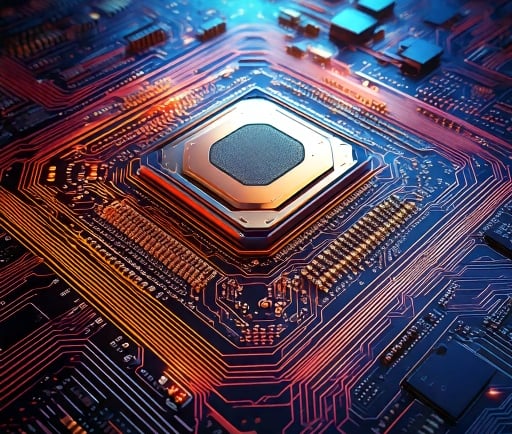The Future of Computing: Harnessing the Power of Super Quantum Chips


Introduction to Super Quantum Chips
In recent years, quantum computing has progressed from theoretical concepts to a burgeoning field that promises to revolutionize various industries. At the heart of this innovation are super quantum chips, which utilize qubits as the foundational unit of information processing. Unlike classical bits that represent binary states of 0 or 1, qubits can exist in multiple states simultaneously due to the principles of superposition and entanglement. This unique characteristic enables super quantum chips to perform complex calculations at unprecedented speeds.
The Mechanism Behind Qubits
The functionality of qubits is pivotal to the operation of super quantum chips. Qubits can be realized using various physical systems, such as superconductors, ions trapped in electromagnetic fields, or photons. Superposition allows a qubit to represent both 0 and 1 at the same time, while entanglement creates a link between qubits, enabling them to share information instantaneously regardless of the distance separating them. This intricate interplay allows super quantum chips to process data in parallel, offering a stark contrast to classical computing architectures, which operate sequentially.
Applications and Implications of Super Quantum Chips
The implications of super quantum chips stretch across myriad fields, including cryptography, drug discovery, and optimization problems. For instance, in cryptography, super quantum chips could potentially break traditional encryption methods, requiring a rethink of data security protocols. In drug discovery, the enhanced computational capabilities can simulate molecular structures and interactions, radically speeding up the development process for new pharmaceuticals. Furthermore, super quantum chips hold promise in solving complex optimization problems, which are prevalent in logistics and supply chain management, leading to greater efficiency and cost reductions.
As we move further into the quantum era, the deployment of super quantum chips is expected to catalyze significant advancements across various sectors. However, significant challenges remain, including error rates and the coherence times of qubits that need to be addressed to fully realize the potential of quantum computing. Researchers and technologists are actively seeking solutions, and the groundwork laid today will shape the future capabilities of computing technologies.
In conclusion, super quantum chips represent a monumental leap in computational technology. By leveraging the power of qubits, these chips are designed to tackle problems that would have been insurmountable with classical computing methods. As research progresses, we will undoubtedly witness a transformation in how we approach computation, leading to innovations that could redefine our technological landscape.
